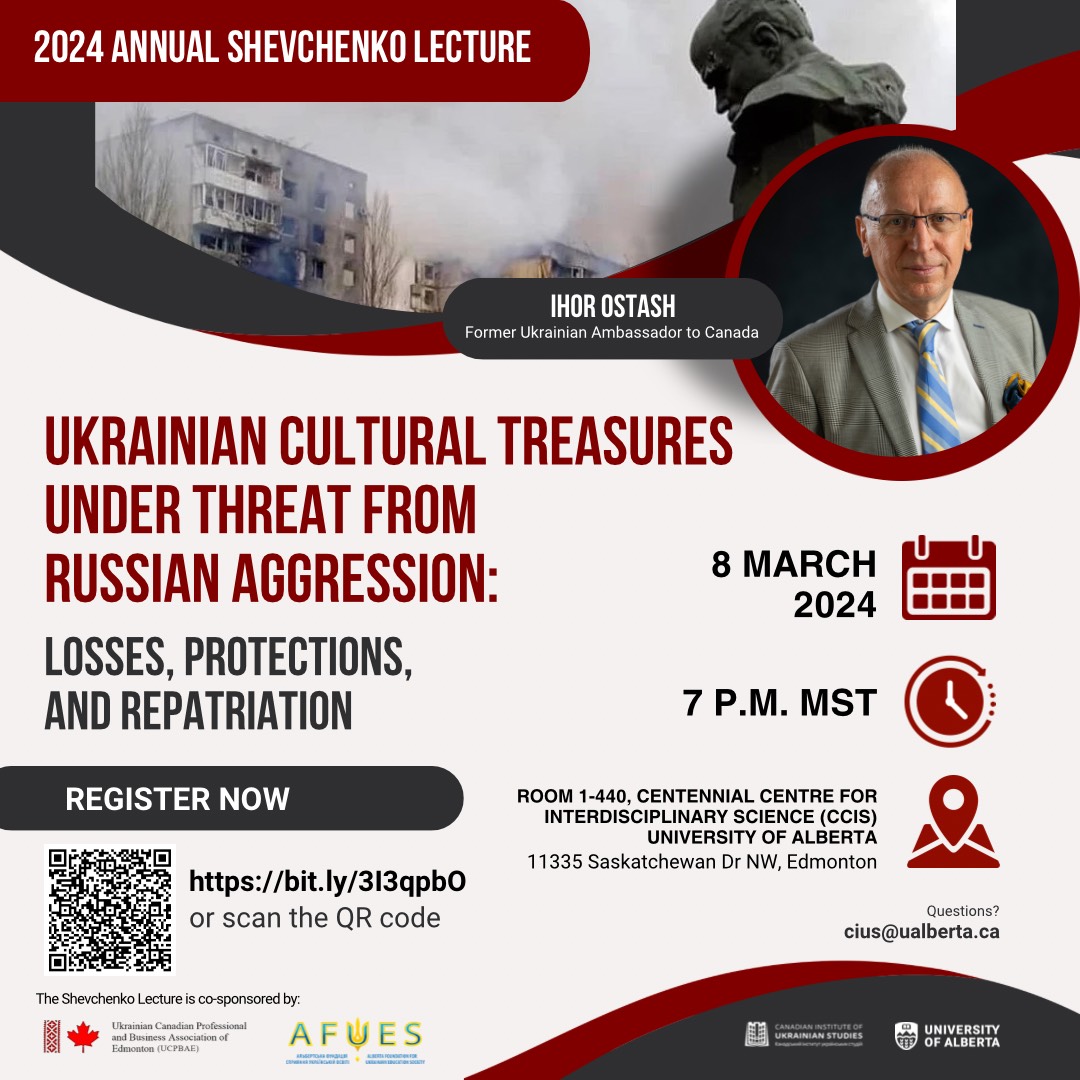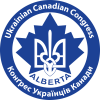
Since the start of the Russian war on Ukraine, eight of the UNESCO World Heritage treasures in Ukraine have come under the threat of destruction. In the past two years of escalated war on Ukraine’s territory, 872 cultural heritage sites and 1,907 cultural infrastructure entities have suffered destruction, and damage sustained by over 630 places of worship. To safely preserve Ukraine’s museum collections, the Ministry of Culture and Information Policy of Ukraine evacuated 43 museums and preserves. Extraordinary efforts have been expended toward protecting Ukrainian cultural heritage, particularly by UNESCO.
Remarkably, some collections of Ukrainian cultural treasures have been repatriated during Russia’s war on Ukraine, including Scythian gold from Estonia and the Netherlands. International agreements protecting cultural property are an important factor in preventing Ukrainian cultural treasures from being stolen and traded in global markets.
Please join CIUS and Ihor Ostash for a compelling lecture on the realities and impact of war in Ukraine on its cultural legacy.
The annual Shevchenko Lecture is organized by the Canadian Institute of Ukrainian Studies, University of Alberta, and co-sponsored with the Ukrainian Canadian Professional and Business Association (Edmonton) and the Alberta Foundation for Ukrainian Education Society.
About the lecturer: Ihor Ostash is a Ukrainian politician and diplomat. He studied philology at Lviv Franko National University and law at Kyiv Shevchenko National University, attaining the scholarly rank of Candidate of Sciences (PhD equiv.) and working in the Ukrainian Academy of Sciences as well as on a Harvard fellowship. As a People’s Deputy in the Verkhovna Rada of Ukraine (1994–2006), Ostash was involved in foreign relations and in 1999–2005 was vice-president of the Parliamentary Assembly of the OSCE. He has been the Ambassador of Ukraine to Canada (2006–11) and Lebanon (since 2016). Ostash has written, edited, and compiled books and films about parliamentary diplomacy, the popular songwriter Bohdan Vesolovsky, and the Ukrainian community in Lebanon, and has steered Arabic translation projects of well-known Ukrainian works.


